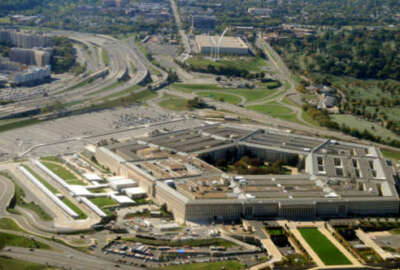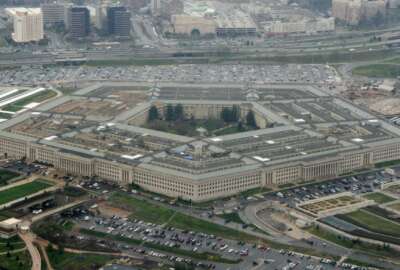
90,000 more military personnel told to stay put under latest coronavirus restrictions
DoD's latest stop-movement order will halt a significant number of the military services' overseas deployments and redeployments for the next 60 days.
The Pentagon is adding another layer of travel restrictions as part of its response to the global coronavirus pandemic by pulling back overseas deployment orders for the next two months.
The latest order, which Defense Secretary Mark Esper signed Wednesday, is expected to affect travel movements for an additional 90,000 servicemembers and their families who had planned to move from the U.S. to an overseas location — or from one overseas location to another.
The Defense Department declined to release the text of Esper’s directive, saying it had been deemed “For Official Use Only.” But in a statement, the department said the latest stop-movement order would affect “exercises, deployments, redeployments and other global force management activities.”
In an interview with the Reuters news agency on Wednesday, Esper said the order would not affect troops who were already scheduled to return to the U.S. from Afghanistan — but that most other overseas movements would be impacted.
“The purpose is to make sure that we’re not bringing the virus back home, infecting others, that we’re not spreading it around the military,” he said.
As of Wednesday morning, the U.S. military had 415 documented cases of COVID-19 among servicemembers, civilians, family members and contractors worldwide. Although there has only been one confirmed coronavirus death so far — a DoD contractor — the total number of cases had risen by 94 compared to just one day earlier.
“Our curve is not flattening,” Brig. Gen. Paul Friedrichs, the Joint Staff Surgeon said at a news conference earlier Wednesday. “We’re stepping through this like everyone else is, and adjusting based on the data that’s coming in and what we’re seeing with our units. It’s a balancing act, because at the end of the day, we have to balance both the health and protection of our service members with our responsibility to this nation to continue to defend it.”
The latest travel restrictions appeared to be unprecedented in their scope, but are only the latest the Pentagon has imposed as it tries to limit the spread of the virus among its ranks.
In previous stop-movement orders over the past two weeks, DoD has all but halted its domestic permanent change of station (PCS) moves for the next two months, barred servicemembers from personal travel outside their local area, and halted any civilian hiring that would require a new employee to be onboarded from outside the local commuting area.
Until Wednesday, many overseas deployments had continued, but servicemembers could not bring family members with them on PCS moves.
As sweeping as it is, the latest order does include some exceptions: DoD will let Navy vessels continue to their destinations, as long as they’ve already been underway for the past 14 days. People who’ve already started their travel are also exempt, as are people who’ve already gone somewhere on temporary duty and need to get back home.
Also on Wednesday, the Defense Department ordered all of its installations worldwide to raise their health protection conditions to “Charlie,” the second-most restrictive on the “HPCON” scale.
The military services and installation commanders have some discretion to decide what specific precautions to implement under HPCON Charlie, but in general, it means bases will be restricted only to mission-essential personnel. At some entry points, everyone coming in will have their temperatures taken, and meetings and gatherings that involve more than a few people at a time are prohibited.
DoD took the same step for the Pentagon and other national capital region locations a day earlier. And on Wednesday, the department announced its first confirmed case of coronavirus involving a Pentagon employee. A Marine who works in the building tested positive the day before, and his workspace was cleaned by a response team, Defense officials said.
Copyright © 2025 Federal News Network. All rights reserved. This website is not intended for users located within the European Economic Area.
Jared Serbu is deputy editor of Federal News Network and reports on the Defense Department’s contracting, legislative, workforce and IT issues.
Follow @jserbuWFED





